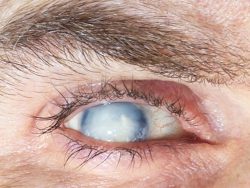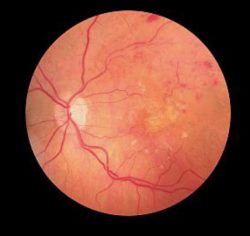When it comes to eye care, most people do not consider the impact of diet and maintaining a healthy body. There’s a popular saying that goes, "You are what you eat." If you are like most people, you don't care for your eyes at all until you start having a vision problem. But, would you believe that vision care does not begin with eye exams at an eye doctor? It begins with a healthy diet!
Most people do not know that eye disease often grows from inadequate nutrition and diet. Two of the most common vision problems are cataracts, and complications due to diabetes, and both of these are often caused by a poor diet.
Your eyes require a healthy diet. The simplest way to maintain optimal vision is to focus on a diet high in nutrients and rich in antioxidants. Also, if you’re unsure about your vision, even if you are consuming a healthy diet, you should seek advance eye care with a proper eye examination. Visiting a local eye doctor can help you to:
You can also request any special recommendations from your family eye care doctor to ensure you’re getting a healthy intake of the nutrients you need to maintain good vision.
According to the American Optometric Association (AOA): “Cataracts are a leading cause of visual impairment among aging Americans and a key quality of life issue.” The AOA reports more than million surgical procedures for cataract removal each year. However, they also say that many of these surgeries can be reduced with an improved diet.
Cataracts occur when the proteins in the lenses of your eyes become damaged, thus causing them to become translucent or opaque. Cataracts develop in the lenses of the eyes for many reasons, such as:
Research published in the International Journal of Obesity came to the following conclusion: The breakdown of lens cells causes cataracts. Do you want your eyes to look like this:

The three most common causes of diabetic induced cataracts are:
For age-related cataracts, the following risk factors were found:
Since cataracts are due to the accumulation of damaged cell proteins, the best way to prevent this from occurring is a diet rich in:
Carrots and apricots, as well as a cooked sweet potato, are a quick and easy way to add more than the Recommended Daily Allowance (RDA) for these nutrients.

Before you discover ways to improve your diet to improve your vision, remember that eating certain foods is not a cure for eye diseases. If you wear prescription glasses or your vision is blurry, eating more vitamins or taking nutritional supplements will not give your vision back if it is already lost. A good diet is a long term investment in your health, and also for your entire body.
However, if you are developing cataracts, there are certain glasses lenses and options which may help in certain situations, for example, to mitigate glare during night driving.
Having the right nutrients in your diet can go a long way to maintaining and preserving good vision. To guide you in selecting the right foods, here are five eye-friendly nutrients recommended by the American Optometrist Association (AOA):
Found in many fruits and vegetables, Vitamin C is particularly effective at slowing the progression of age-related macular degeneration (AMD) and visual acuity loss. It is also important for the following reasons:
Lutein and zeaxanthin have been clinically linked to helping reduce the risk of chronic eye diseases such as cataracts and age-related macular degeneration. Having a diet that includes leafy green vegetables is a simple way to get more of these super eye-health foods. You can also find these nutrients in eggs.
Zinc plays an important role in the body by bringing vitamin A from the liver to the retina. This produces is absolutely fundamental to produce melanin, a protective pigment that helps against harmful UV rays. Throughout your whole body, your eye has the highest concentrations of zinc. Therefore, it’s critical to maintain a diet rich in zinc-rich foods, such as:
It’s important to maintain healthy eyes with a proper intake of nutrients to support it. However, eating eye-healthy foods is not the only way you can ensure the health and performance of your vision. Other ways you can care for your vision include:
The National Institute of Diabetes and Digestive and Kidney Disease provides ample research on the link between diabetes and vision health. They compiled a detailed list of various diabetic eye diseases and problems that can occur. If you are diabetic, it is essential that you receive regular eye care exams from your ophthalmologist and/or optometrist. The following are a few of the symptoms due to rising blood sugar (i.e., before being diagnosed with diabetes):
Four Serious Eye Diseases Common To Diabetics
Whether or not someone is diagnosed with diabetes, the following are four serious diseases that can put your vision at risk:
The retina is a light-sensitive region of the eye that focuses images coming through the eye’s lens. When diabetic retinopathy occurs, blood vessels weaken, bulge, and can lean into the retina which can result in serious vision problems.

The macula is a critical region of your eye that’s needed for reading, driving, and seeing. Diabetes can cause the macula to swell and result in macular edema which is the partial destruction of the outer vision of your eye. If the disease persists, it can result in partial vision loss or total blindness.
Glaucoma is an eye disease known for causing damage to the optic nerve which results in serious vision loss and blindness. People with diabetes have double to the risk of getting glaucoma, which makes early treatment and a proper diet essential to maintain good vision.
Finally, cataracts another serious eye problem for people with diabetes which is thought to be due to glucose levels depositing on the lens of your eyes. People with diabetes tend to get cataracts at a younger age and they tend to progress faster.